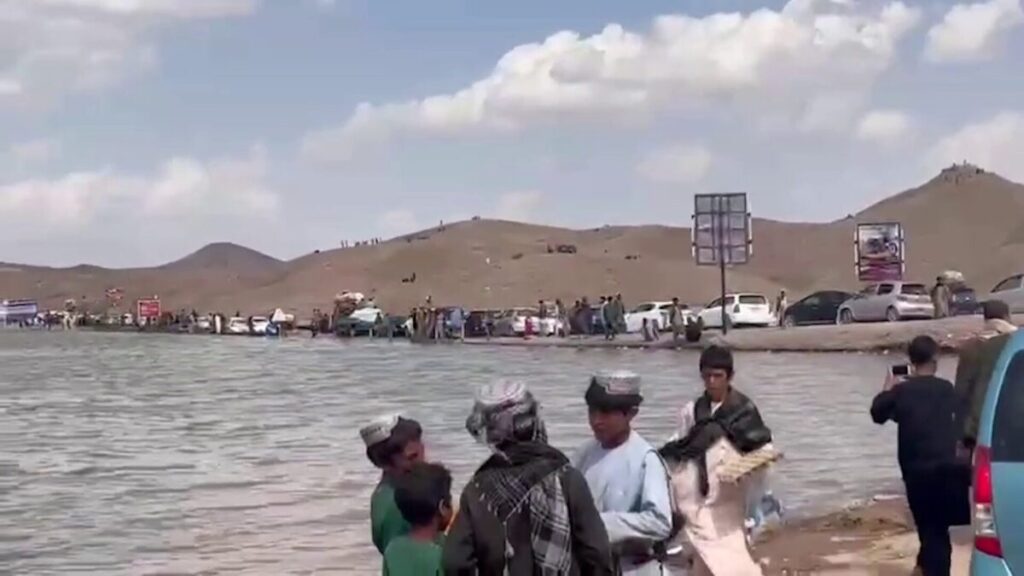Badghis Province, Afghanistan — Along winding dirt roads and over rugged hills, Afghans are making their way to Pesta Leq, a remote stretch of pistachio-covered land outside the provincial capital of Qala-e-Naw, in search of something rare: a few hours of relief.
The arrival of spring has turned this corner of Badghis Province into a patchwork of green hills and blossoming trees, drawing families hoping to escape the hardships that weigh on daily life under Taliban rule. In the rolling landscape, tents are pitched, grills are lit, and laughter echoes faintly across the wide-open fields.
Visitors are calling for greater investment in the area — amenities like drinking water, basic rest facilities and recreational services — to better accommodate the growing number of people seeking rest in nature.
“People come here from all parts of Afghanistan, not just Herat or Nimruz,” said Feraidoun, a visitor from Herat. “Everyone is looking for a little peace.”

Pesta Leq offers more than a change of scenery. In a country battered by drought, economic collapse and social restrictions, the hills have become a fragile sanctuary. Local vendors have set up temporary stalls selling tea, kebabs and snacks, carving out modest livelihoods amid the tents and tourists.
But the pressures are visible. Years of drought and the shifting climate have thinned the pastures and strained the livestock herders who rely on the land.
“This year is harder than the last,” said Abdullah, a local resident. “There’s no water, no grass. Life is getting tougher.”
Covering more than 28,000 hectares, Pesta Leq’s pistachio forests are among the few remaining natural treasures of Badghis Province. Yet locals say the increasing social restrictions — particularly the Taliban’s crackdowns on public gatherings and women’s freedoms — have cast a shadow even over places of leisure.
Still, on weekends, the hills come alive with small bursts of celebration: children running barefoot through the grass, men smoking over barbecue fires, and women chatting quietly under makeshift awnings.
For many Afghans, the brief gatherings at Pesta Leq are less about leisure than about survival — finding, even for a short time, a space where life feels a little freer, a little lighter.





